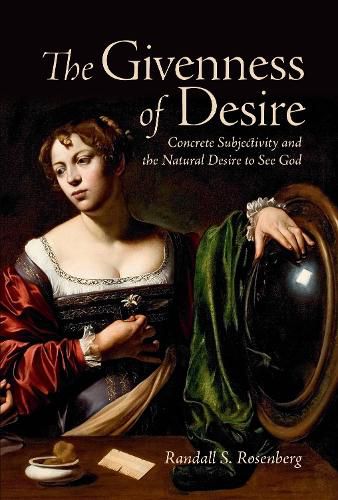Readings Newsletter
Become a Readings Member to make your shopping experience even easier.
Sign in or sign up for free!
You’re not far away from qualifying for FREE standard shipping within Australia
You’ve qualified for FREE standard shipping within Australia
The cart is loading…






In The Givenness of Desire, Randall S. Rosenberg examines the human desire for God through the lens of Lonergan’s concrete subjectivity. Rosenberg engages and integrates two major scholarly developments: the tension between Neo-Thomists and scholars of Henri de Lubac over our natural desire to see God and the theological appropriation of the mimetic theory of Rene Girard, with an emphasis on the saints as models of desire. With Lonergan as an integrating thread, the author engages a variety of thinkers, including Hans Urs von Balthasar, Jean-Luc Marion, Rene Girard, James Alison, Lawrence Feingold, and John Milbank, among others. The theme of concrete subjectivity helps to resist the tendency of equating too easily the natural desire for being with the natural desire for God without at the same time acknowledging the widespread distortion of desire found in the consumer culture that infects contemporary life. The Givenness of Desire investigates our paradoxical desire for God that is rooted in both the natural and supernatural.
$9.00 standard shipping within Australia
FREE standard shipping within Australia for orders over $100.00
Express & International shipping calculated at checkout
In The Givenness of Desire, Randall S. Rosenberg examines the human desire for God through the lens of Lonergan’s concrete subjectivity. Rosenberg engages and integrates two major scholarly developments: the tension between Neo-Thomists and scholars of Henri de Lubac over our natural desire to see God and the theological appropriation of the mimetic theory of Rene Girard, with an emphasis on the saints as models of desire. With Lonergan as an integrating thread, the author engages a variety of thinkers, including Hans Urs von Balthasar, Jean-Luc Marion, Rene Girard, James Alison, Lawrence Feingold, and John Milbank, among others. The theme of concrete subjectivity helps to resist the tendency of equating too easily the natural desire for being with the natural desire for God without at the same time acknowledging the widespread distortion of desire found in the consumer culture that infects contemporary life. The Givenness of Desire investigates our paradoxical desire for God that is rooted in both the natural and supernatural.